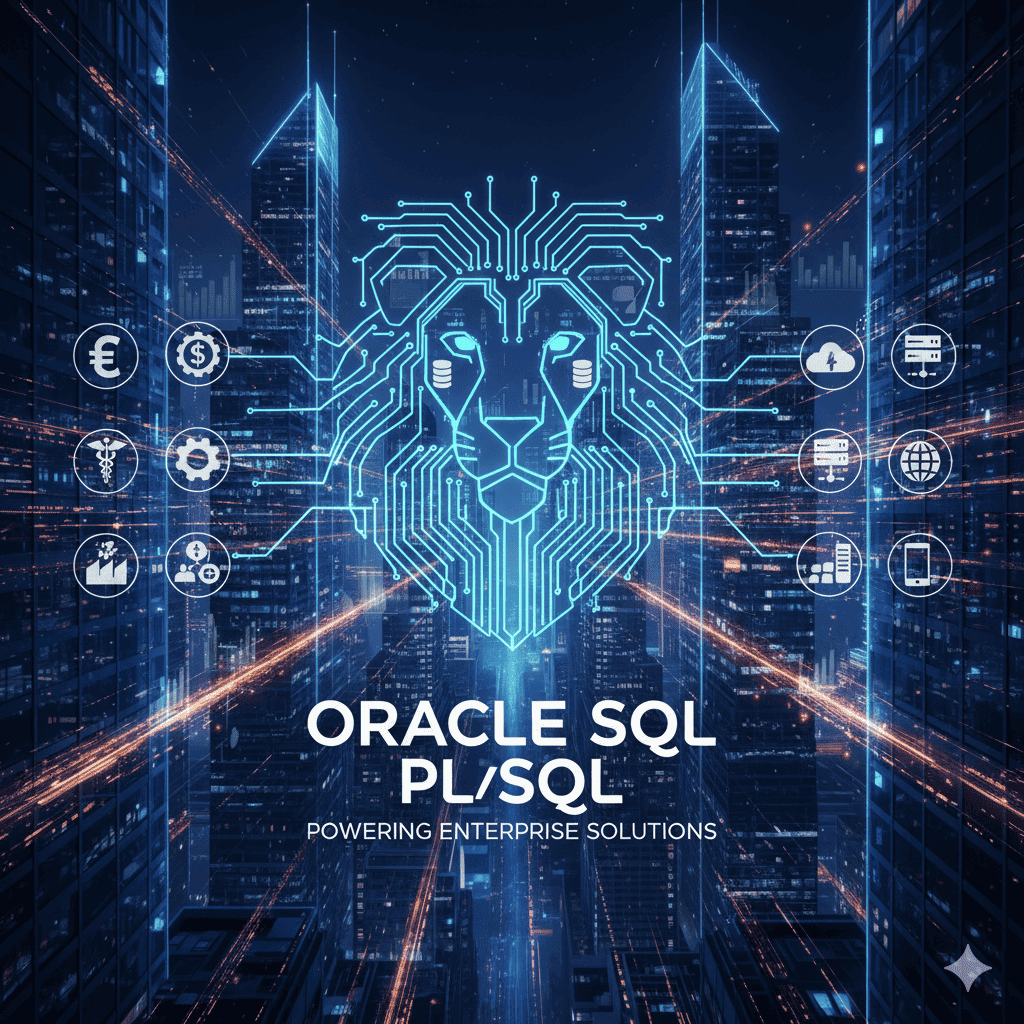How Oracle SQL and PL/SQL Power Real-World Enterprise Solutions

In today’s data-driven business world, organizations rely heavily on robust and scalable database technologies to manage, process, and analyze large volumes of information. Among the most trusted tools for enterprise data management are Oracle SQL and PL/SQL. Together, they form the backbone of many corporate applications, ensuring data integrity, high performance, and operational efficiency. This blog explores how Oracle SQL and PL/SQL power real-world enterprise solutions, highlighting their benefits, applications, and why they continue to be the preferred choice for global businesses.
Read More: How Oracle SQL and PL/SQL Power Real-World Enterprise Solutions
Understanding Oracle SQL and PL/SQL
Before diving into their enterprise applications, it’s important to understand what these technologies are and how they work together.
Oracle SQL (Structured Query Language) is the standard language used to interact with Oracle databases. It allows users to define, retrieve, and manipulate data efficiently. SQL is declarative in nature—meaning you tell the database what you want, not how to get it.
PL/SQL (Procedural Language/SQL), on the other hand, is Oracle’s procedural extension of SQL. It combines the data manipulation power of SQL with the procedural capabilities of programming languages. With PL/SQL, developers can write logic, handle exceptions, and create reusable modules like functions, procedures, and triggers, making database operations more powerful and efficient.
Together, Oracle SQL and PL/SQL offer a complete and cohesive environment for managing enterprise data at scale.
Why Enterprises Depend on Oracle SQL and PL/SQL
-
High Performance and Scalability
Oracle databases are designed to handle enormous amounts of data without compromising performance. SQL enables efficient querying, while PL/SQL helps optimize logic execution by processing data within the database itself—reducing network overhead. This makes them ideal for enterprises that manage millions of transactions daily, such as banks, telecom companies, and retail giants. -
Data Integrity and Security
One of the greatest strengths of Oracle SQL and PL/SQL is their ability to maintain strict data integrity and security. Features like constraints, triggers, and stored procedures ensure that data remains consistent and accurate. Meanwhile, Oracle’s built-in security controls, such as user roles and privileges, protect sensitive information from unauthorized access—critical for industries like healthcare and finance. -
Automation and Efficiency
PL/SQL is widely used to automate repetitive database tasks. Whether it’s generating reports, updating records, or monitoring system performance, automation through PL/SQL scripts reduces human error and saves valuable time. This automation leads to faster business operations and more reliable data handling. -
Integration with Enterprise Systems
Oracle SQL and PL/SQL are highly compatible with a wide range of enterprise systems. They integrate seamlessly with ERP solutions, CRM applications, and analytics platforms. This integration ensures that different parts of an organization—finance, sales, supply chain, and human resources—can all work with synchronized, real-time data. -
Robust Error Handling and Reliability
Enterprise applications require reliability and resilience. PL/SQL offers advanced exception-handling features that allow developers to manage and recover from errors gracefully. This ensures continuous operation even in the face of unexpected issues, making it a vital component of mission-critical business applications.
Real-World Applications of Oracle SQL and PL/SQL
-
Banking and Financial Services: Banks use Oracle SQL and PL/SQL to manage customer data, process transactions, and generate financial reports in real time. Their ability to handle high-volume operations securely is invaluable.
-
Healthcare Systems: Hospitals and healthcare organizations rely on Oracle databases for patient record management, billing, and compliance with data protection regulations.
-
Retail and E-commerce: Retailers use PL/SQL for inventory management, order tracking, and data analytics, ensuring accurate and timely information for decision-making.
-
Telecommunications: Telecom providers utilize Oracle SQL for managing subscriber data and PL/SQL for automating billing and customer service operations.
The Future of Oracle SQL and PL/SQL in Enterprises
As businesses continue to adopt cloud computing and digital transformation, Oracle SQL and PL/SQL remain central to these advancements. Oracle’s cloud-based offerings now bring the same reliability and functionality to scalable cloud infrastructures, enabling hybrid and multi-cloud solutions.
Moreover, with increasing emphasis on data analytics, AI, and machine learning, the structured and consistent data managed by Oracle SQL and PL/SQL forms the foundation for accurate insights and predictive modeling.
Visit Here: https://www.fusion-institute.com/applications-of-oracle-sql-and-plsql-in-enterprise-systems
Conclusion
Oracle SQL and PL/SQL are not just database technologies—they are the engines that power modern enterprise systems. Their combination of performance, reliability, and flexibility allows organizations to handle complex data challenges effortlessly. From automating processes to ensuring data integrity, they continue to be the cornerstone of enterprise data management in a fast-evolving digital landscape. By understanding and leveraging these technologies effectively, businesses can not only improve efficiency but also gain a competitive edge in the era of data-driven innovation.
- Oracle_SQL
- PL/SQL
- enterprise_database_solutions
- Oracle_database
- SQL_in_enterprises
- PL/SQL_applications
- Oracle_SQL_benefits
- data_management
- enterprise_automation
- Oracle_PL/SQL_use_cases
- business_data_systems
- Oracle_SQL_features
- database_performance
- enterprise_software_solutions
- Oracle_cloud_database
- Fusion_Software_Institute
- Oracle_SQL_&_PL/SQL
- Business_Intelligence
- Art
- Causes
- Best Offers
- Crafts
- Dance
- Drinks
- Film
- Fitness
- Food
- Jocuri
- Festival
- Gardening
- Health
- Home
- Literature
- Music
- Networking
- Alte
- Party
- Religion
- Shopping
- Sports
- Theater
- Wellness



